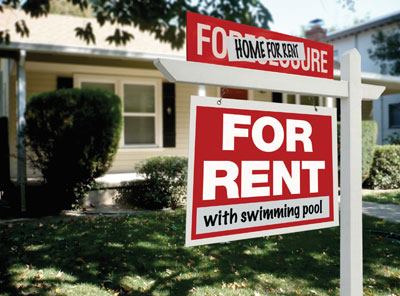As more and more real estate investors buy foreclosed homes to use as rental properties, some pool companies are reaping the benefits.
These properties are bank-owned houses that are purchased by investors not for immediate flip, but to rent to tenants.
Earlier this year, the federal government generated fresh interest in real estate owned properties (better known as REOs) with a pilot program that allows qualified investors to buy foreclosed homes from Fannie Mae in bulk, as long as they agreed to rent them out.
Fannie Mae and Freddie Mac owned approximately 180,000 REO properties in 2011, according to a recent report by the Federal Housing Finance Agency.
As these deals happen, they represent new chances for repair and service revenue at pool firms, as investors bring neglected homes — and their swimming pools — back up to standard. That can be a big job. “We’ve seen $100 repairs to $50,000 renovations,” said Jim DeBerry, founding and managing partner of Aqua Pool Dealer in Orlando. “It’s wide open, and we are not going to down the prospective opportunity to earn revenue from these jobs.”
But REO pool work is proving to be challenging to navigate for firms, many of whom report mixed experiences. “At Memphis Pool, we’ve accepted some REO rental property customers,” said Josh Henderson, who oversees service and renovation for Memphis Pool in Tennessee. “While we haven’t generated much revenue from the remodel side, our maintenance and repair divisions have.”
Others have been disappointed. “We thought at one point that this was going to be huge,” said Steve Bludsworth, owner of All Pool Service and Supply in Orlando. “But there’s always a middle man. You’re never dealing with the bank directly.”
Some, like Mike Stinson, president of Mike the Poolman in Folsom, Calif., refuse to take such jobs because they think the margins are too low. “It all seems to be real tight-budget work,” Bludsworth agreed.
Making the finances do-able on such jobs seems to depend largely on the real estate investors involved. At Memphis Pool, Henderson has worked with regional banks as well as private investors. “[Private] investors tend to want band-aid repair, but still expect premium results,” he noted. “The bank-owned properties will opt for more substantial repairs such as complete pumps, filters, and heaters.”
“We have found the REO rentals to be profitable as long as we don’t get drawn out of our internal processes,” Henderson added. “I would definitely accept more of this work, as long as the investor will agree to our terms.”
Others embrace REO rental work as a great chance for revenue and new customers in a tough market. “You will likely never see me complain about the opportunity to do business,” said DeBerry, whose firm has worked on hundreds of REO properties with pools. “If we can get our information out there to individuals with pools, we’re going to.”
To do that, though, pool companies must overcome another hurdle: Some real estate investment firms have concerns about renting out homes with pools, so they avoid purchasing such properties. That’s the policy of Carrington Holding Co., a Connecticut-based diversified real estate firm that handles REO rentals across the nation. “We’re not anti-pool,” said Executive Vice President Rick Sharga. But the firm does question the value — and costs — of a pool in a single-family rental property. “We don’t believe the returns justify the added expense,” Sharga added.
Liability is another worry. “Local municipalities and states have special requirements for pool safety and maintenance that can be difficult to manage, and at a significant expense,” said Mark Velazquez, vice president of operations at research firm CoreLogic, where he handles distressed properties with pools. “Additionally, the risk associated with death or injury [involving] unauthorized pool access is a significant risk to the owner.”
Of course, Carrington is only one player in the REO rental marketplace, and others see the question of pools differently.
“Many of the companies that we consult with find that pools can be a very favorable factor in a rental property,” said Chris Clothier, partner at Memphis Invest, a Memphis, Tenn.-based real estate investment firm that handles REO rentals. “In areas such as Phoenix and Orlando, where pools may be located in more than half of the homes in a neighborhood, having one at your rental can make a significant difference in time spent vacant and rent charged. So real estate investors in these areas factor in the additional costs of insurance and maintenance, and raise the rental rate so the return is not impacted.”
It’s different in cool weather markets. “Oftentimes, in areas where pools have to be ‘winterized,’ pools are removed from homes. The cost of removal and returning the property to a manicured yard is lower than restoring and maintaining the pool,” said Clothier, whose firm often spends $6,000 to $15,000 on pool restorations. “The future cost of maintenance would be shifted to the investor and, unfortunately, a pool is not as much a factor when determining rent in a market where it is only used one-third of the year.”




